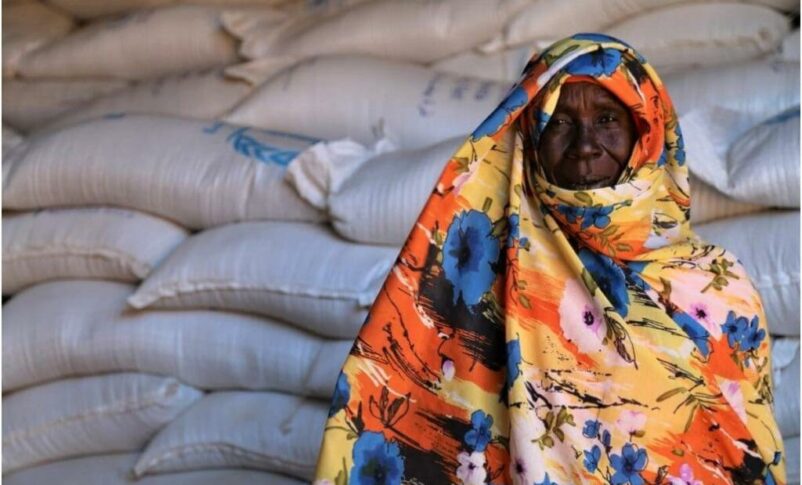Darfur on brink of starvation, UN blames violence and bureaucratic hurdles
May 5, 2024 (PORT SUDAN) – The UN World Food Programme (WFP) issued a stark warning today, stating that time is running out to prevent widespread starvation in Sudan’s Darfur region. Intensified fighting in El Fasher, the capital of North Darfur, is severely hindering efforts to deliver critical food assistance.
Civilians in El Fasher and surrounding areas are already grappling with extreme hunger. However, ongoing violence and bureaucratic roadblocks have consistently disrupted the delivery of aid. The recent escalation in El Fasher has halted aid convoys using the newly opened Tine border crossing with Chad, which traverses North Darfur.
Furthermore, restrictions imposed by authorities in Port Sudan are preventing WFP from utilizing the Adre border crossing, the only other viable route for humanitarian aid from Chad. This crossing serves West Darfur and other vital locations across Central, South, and East Darfur. These access limitations jeopardize WFP’s plan to provide crucial assistance to over 700,000 people before the rainy season when many roads in Darfur become impassable.
“Unimpeded access to conflict zones in Sudan is paramount,” stated Michael Dunford, WFP’s Regional Director for Eastern Africa. “WFP urgently requires unrestricted access and security guarantees to deliver aid to families facing life-threatening hunger amidst this brutal violence. Access to the Adre border crossing and the ability to move assistance across frontlines from Port Sudan are crucial for reaching people throughout Darfur.”
The recent surge in violence in El Fasher exacerbates the dire humanitarian situation in Darfur, where an estimated 1.7 million people already experience emergency hunger levels. El Fasher, previously a relative safe haven with numerous pre-existing IDP camps, is now facing critical conditions, with reports of child malnutrition deaths.
The renewed violence forces many to flee El Fasher and surrounding areas, some for the second or third time, increasing their vulnerability. WFP expresses grave concern that hunger will intensify dramatically as the lean season between harvests approaches, depleting food stocks.
“The situation is desperate,” said Dunford. “People are resorting to extreme measures like consuming grass and peanut shells. Without immediate aid delivery, we risk witnessing widespread starvation and death across Darfur and other conflict zones in Sudan.”
Over the past six weeks, WFP has managed to deliver emergency food and nutrition assistance to over 300,000 people in North, West, and Central Darfur through the Tine and Adre crossings and a crossline route from Port Sudan. These breakthroughs came after lengthy negotiations. However, with all routes currently blocked, this progress appears short-lived.
WFP and the broader humanitarian community require consistent and large-scale aid delivery to prevent the crisis from worsening. One year of conflict in Sudan has triggered an unprecedented hunger catastrophe, threatening to become the world’s largest. With nearly 28 million people across Sudan, South Sudan, and Chad facing acute food insecurity, the conflict’s impact spills over, exacerbating existing challenges in neighbouring countries.
The window for preventing a major disaster is rapidly closing. Concerted international diplomatic efforts are urgently needed to pressure the warring parties to provide access guarantees and adhere to international humanitarian law.

